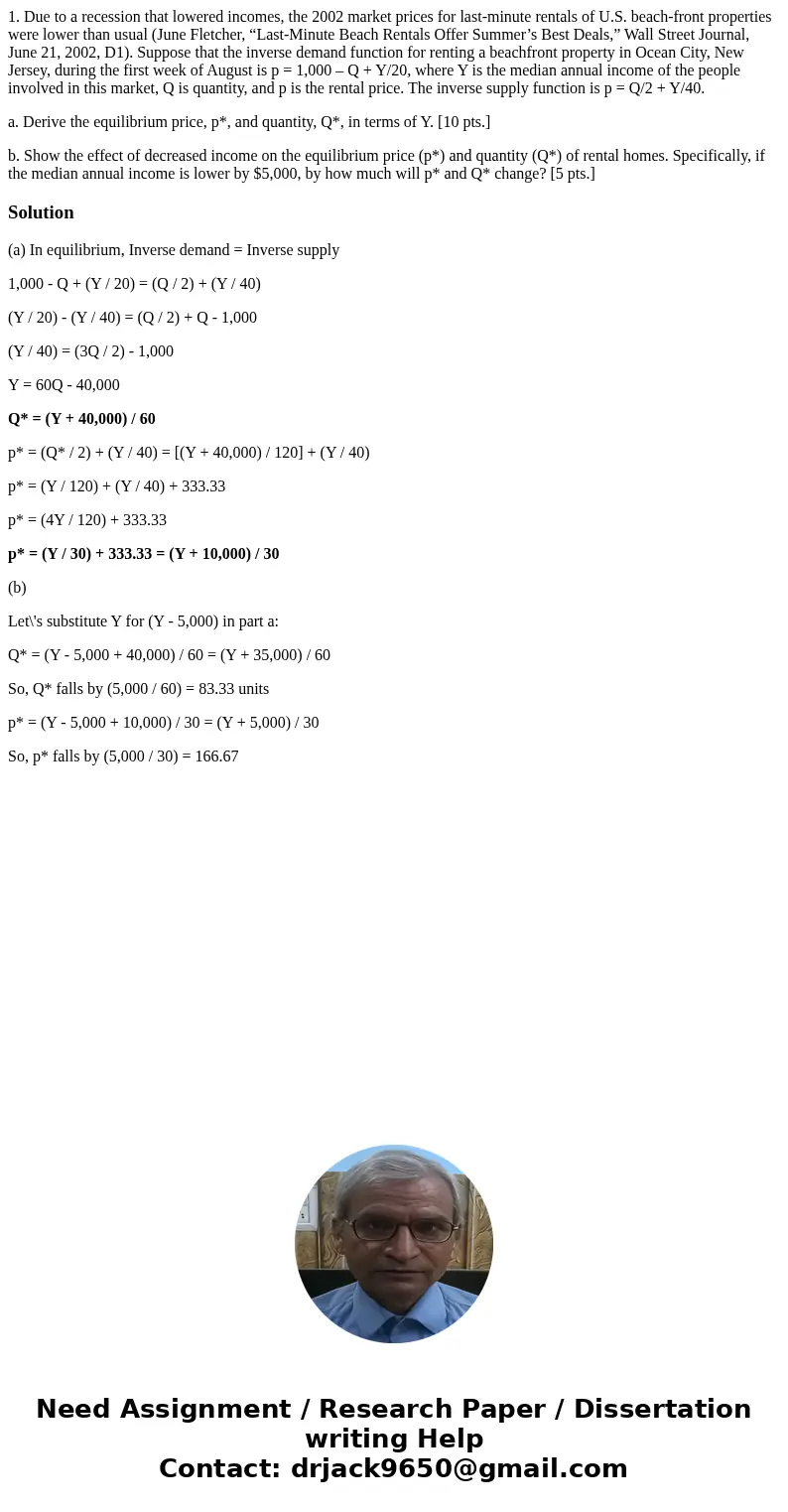1 Due to a recession that lowered incomes the 2002 market pr
1. Due to a recession that lowered incomes, the 2002 market prices for last-minute rentals of U.S. beach-front properties were lower than usual (June Fletcher, “Last-Minute Beach Rentals Offer Summer’s Best Deals,” Wall Street Journal, June 21, 2002, D1). Suppose that the inverse demand function for renting a beachfront property in Ocean City, New Jersey, during the first week of August is p = 1,000 – Q + Y/20, where Y is the median annual income of the people involved in this market, Q is quantity, and p is the rental price. The inverse supply function is p = Q/2 + Y/40.
a. Derive the equilibrium price, p*, and quantity, Q*, in terms of Y. [10 pts.]
b. Show the effect of decreased income on the equilibrium price (p*) and quantity (Q*) of rental homes. Specifically, if the median annual income is lower by $5,000, by how much will p* and Q* change? [5 pts.]
Solution
(a) In equilibrium, Inverse demand = Inverse supply
1,000 - Q + (Y / 20) = (Q / 2) + (Y / 40)
(Y / 20) - (Y / 40) = (Q / 2) + Q - 1,000
(Y / 40) = (3Q / 2) - 1,000
Y = 60Q - 40,000
Q* = (Y + 40,000) / 60
p* = (Q* / 2) + (Y / 40) = [(Y + 40,000) / 120] + (Y / 40)
p* = (Y / 120) + (Y / 40) + 333.33
p* = (4Y / 120) + 333.33
p* = (Y / 30) + 333.33 = (Y + 10,000) / 30
(b)
Let\'s substitute Y for (Y - 5,000) in part a:
Q* = (Y - 5,000 + 40,000) / 60 = (Y + 35,000) / 60
So, Q* falls by (5,000 / 60) = 83.33 units
p* = (Y - 5,000 + 10,000) / 30 = (Y + 5,000) / 30
So, p* falls by (5,000 / 30) = 166.67

 Homework Sourse
Homework Sourse